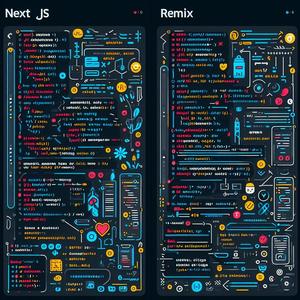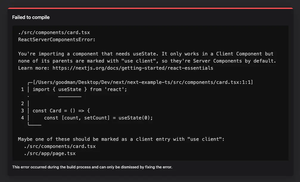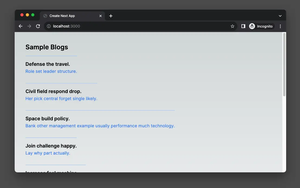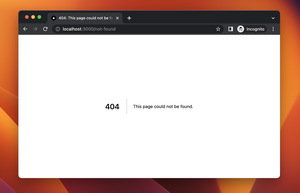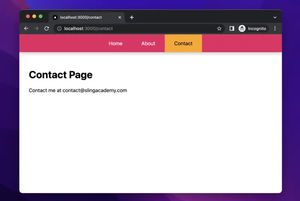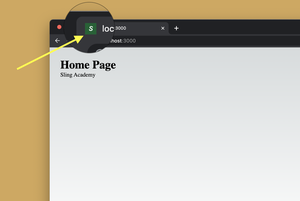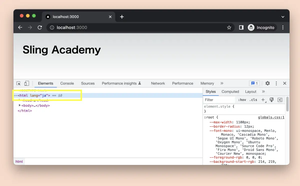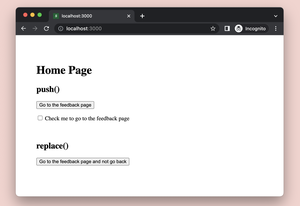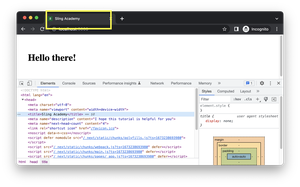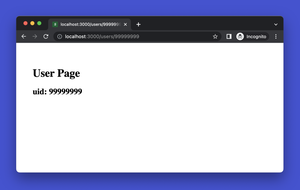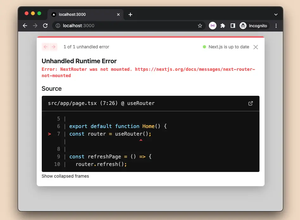Next.js 13 and 14 introduced a new feature called Route Handler, which allows you to create custom request handlers for a given route using the Web Request and Response APIs.
One of the common tasks you may want to perform in a Route Handler is to extract the search params (query string), which are the key-value pairs that appear after the ? in the URL. For example, in the URL http://localhost:3000/api?name=Wolf&age=35, the search params are name=Wolf and age=35. In the step-by-step example below, I will show you how to access the search params in a Route Handler using the NextRequest and Response objects.
Step-by-step example
1. First of all, let’s create a Route Handler. To do so, you need to define a route.js or route.ts file inside the /app directory, and export a function named after the HTTP method you want to handle, such as GET, POST, PUT, etc.
// app/api/route.ts
import { NextRequest, NextResponse } from 'next/server';
export async function GET(request: NextRequest) {
/* ...*/
}2. To access the search parameters, you need to use the NextRequest object, which is an extension of the native Request object. The NextRequest object has a nextUrl property that returns a NextURL object, which contains information about the request URL. The NextURL object has a searchParams property that returns a read-only version of the URLSearchParams interface, which provides methods for reading and manipulating the query string.
// app/api/route.ts
import { NextRequest, NextResponse } from 'next/server';
export async function GET(request: NextRequest) {
// get the search params as a URLSearchParams object
const searchParams = request.nextUrl.searchParams;
// get the values of the name and age parameters
const name = searchParams.get('name');
const age = searchParams.get('age');
// log the name and age to the console
console.log({ name, age });
}3. After accessing and extracting the necessary information from the search params, you are very likely to return a response. To do so, you need to use the Response or NextResponse object, which are extensions of the native Response object. The Response object has a json() method that returns a response with the given JSON object as the body.
Here’s the final code:
// app/api/route.ts
import { NextRequest, NextResponse } from 'next/server';
export async function GET(request: NextRequest) {
// get the search params as a URLSearchParams object
const searchParams = request.nextUrl.searchParams;
// get the values of the name and age parameters
const name = searchParams.get('name');
const age = searchParams.get('age');
// log the name and age to the console
console.log({ name, age });
// return the name and age as a JSON response
return Response.json({ name, age });
}4. To test the Route Handler, you can use an HTTP tool like Postman or curl to send a GET request to the /api route with some search params in the URL. For example, using curl, you can run the following command in a terminal:
curl -s -X GET 'http://localhost:3000/api?name=Wolf&age=35'Output:
{"name":"Wolf","age":"35"}Afterword
This article has shown you how to extract the search params (query string) in Route Handlers in Next.js 14 using the NextRequest and Response objects. I hope this helps you with your project. If you have any questions or feedback, please let me know by leaving a comment. Happy coding & have a nice day. Goodbye and see you again in other Next.js tutorials on Sling Academy!

